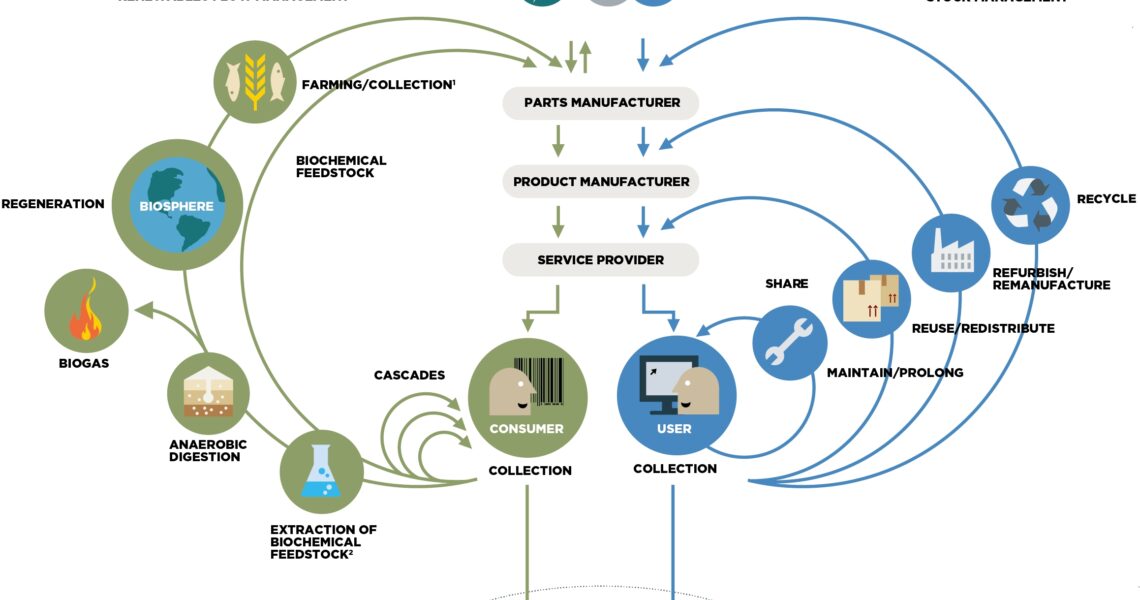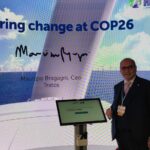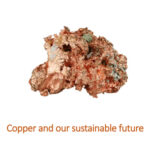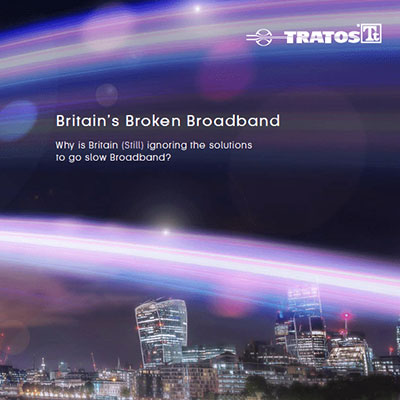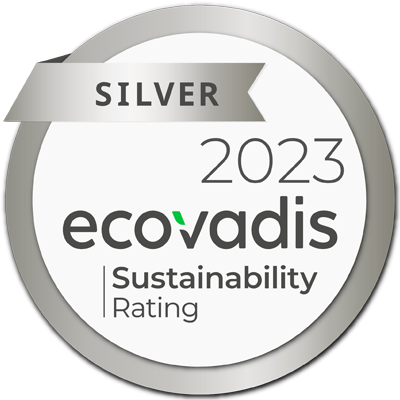- Broadband Connectivity
- Highway Infrastructure
- Rail Transport Infrastructure
- Fusion for Energy
- Renewable energy sources
- Safer Structures Campaign
- Ports’ Electrical Grid
“Circular economy” needs sustainable technology
The world population reached 8 billion people on November 15, 2022, according to the United Nations. In just as little as 40 years, the world population has doubled. The latest world population projections indicate that the world population will reach 10 billion persons in the year 2057. As the global population continues to grow rapidly, it is unavoidable that this will increase demand for raw materials, while supplies of crucial raw materials are limited and decreasing with every passing year.
The current world economy is mostly based on a linear model, in which we take materials from the Earth, make products from them, and eventually throw them away as waste. The sustainable future that we want to achieve, is based on a circular economy, in which by contrast, we stop waste from being produced in the first place. The circular economy gives us the power to grow prosperity, jobs, and resilience while cutting greenhouse gas emissions, waste, and pollution. It gives us the tools to tackle climate change and biodiversity loss together while addressing important social needs.
Mankind stands at a unique point in history. A tipping point with the 4th Industrial Revolution at its fulcrum. As a species, we have done more damage to our world than good. As a species, we can turn that around. Now is our opportunity to make changes for the positive, take a step back from self-interest, and think bigger than our personal tomorrows.
At Tratos, we make highly innovative and quality cables. We conceive, design, and build very advanced cables; cables that will help drive the 4th Industrial Revolution and enable a circular economy to harness ‘good’ technology for a better and re-balanced world.
Tratos works sustainably and in the most environmentally friendly way possible. A good proportion of our own research and development is devoted to how we can improve our cables’ green credentials further. We have been a green company for over a decade and today these properties are something that our clients expect and value – and we’re delighted about that.
In a circular economy, not only do we recycle more, but it is paramount that manufacturers design products to be reusable. For example, electrical devices are designed in such a way that they are easier to repair. Products and raw materials are also reused as much as possible. For example, by recycling plastic into pellets for making new plastic products.
As the illustration picture above, adapted from the Ellen MacArthur Foundation describes, the circular economy is based on three principles, driven by design:
· Eliminate waste and pollution
· Circulate products and materials, at their highest possible value
· Regenerate nature
There are two main cycles – the technical cycle and the biological cycle. In the technical cycle, products and materials are kept in circulation through processes such as reuse, repair, remanufacture and recycling. In the biological cycle, the nutrients from biodegradable materials are returned to the Earth to regenerate nature. A transition to renewable energy and materials underpins it. A circular economy decouples economic activity from the consumption of finite resources. It is a resilient system that is good for business, people and the environment.
For Tratos, a circular economy means less dependency on supply chain deformations. As many raw materials are currently imported from abroad, the international dependence on the supply of important raw materials for industry, but also food, many countries are vulnerable to supply chain problems. In a circular economy, each country is much less dependent on other countries. In the future, secondary materials will be extracted from products that were previously destroyed and incinerated.
Also, Tratos believes in the great potential of the circular economy in lowering carbon emissions. Extracting and using raw materials has a major impact on the environment and increases energy consumption and CO2 emissions. By keeping resources in the loop for longer, we’ll avoid emitting greenhouse gases caused by the energy needed to make products. It will also lead to a reduction of habitat loss, which will improve biodiversity. Less waste will mean less pollution.
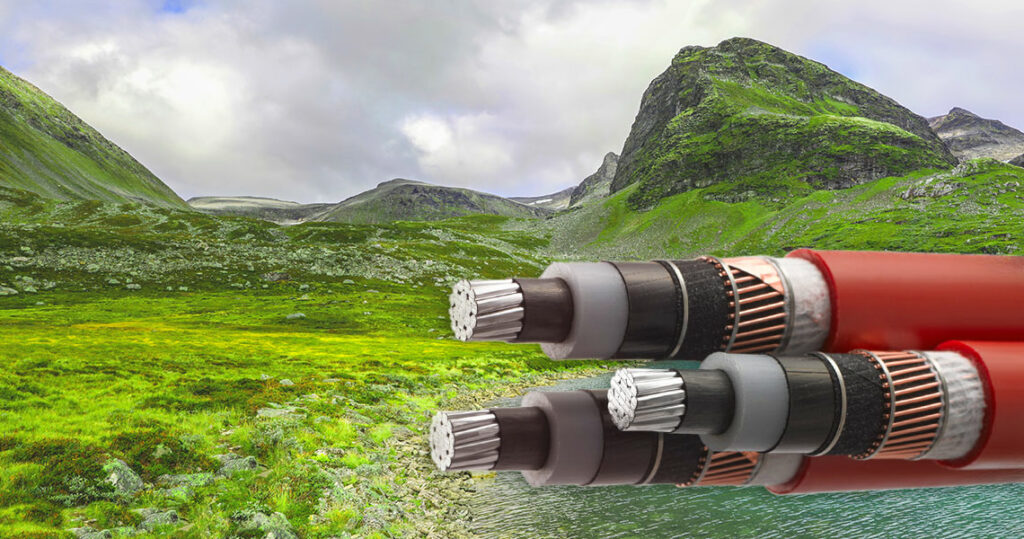
With the Bornewables™ solution, for a 185 mm2 MV cable, Tratos reduced by 320 kg/km the CO2 emissions when compared to the traditional solution based on fossil feedstock.
A recent example towards the circular economy is the cooperation between Tratos and Borealis that made possible the first use of Bornewables™ in the energy industry. the Bornewables are made of renewably sourced feedstocks derived solely from waste and residue streams: from vegetable oil production as well as oil waste and residues; the timber industry; and the food industry – for instance, used cooking oil. From a sustainability perspective, reusing waste to manufacture renewable feedstocks further enhances the Bornewables appeal. The Bornewables™ are ISCC PLUS certified polyolefins with reduced carbon footprint, enabling our customers to meet their sustainability targets while maintaining existing quality standards.
Tratos is challenging the existing standards, which don’t allow the use of recycled materials in the electrical cables. According to a recent Tratos case study, we can lower carbon emissions by 29.02% if we use recycled material.


Related news and publications
Bornewables™
Tratos has partnered with Borealis and together they made it possible the first use of Bornewables™ in the energy industry. This new technology creates new viable solutions for business to reduce their carbon footprint.
Tratos’ CEO joined the world leaders at COP26
It is with great pleasure to announce that Dr Maurizio Bragagni OBE, CEO of Tratos UK Ltd and Honorary Consul for San Marino to the UK, has fully committed himself to actively taking part in …
Copper and our sustainable future
Copper was the first metal manipulated by humans, it remains an important metal in industry today and will play a crucial role towards a sustainable future. As copper is required in any of the clean technologies of the future, it will be in high demand. The copper price is ultimately the tool for generating the necessary fundamental adjustments in the global copper market.
Tratos Academy Publications
Tratos’ publications span books, papers and more, often written in partnership with some of the most prestigious academic institutions, Universities and Business Schools.
